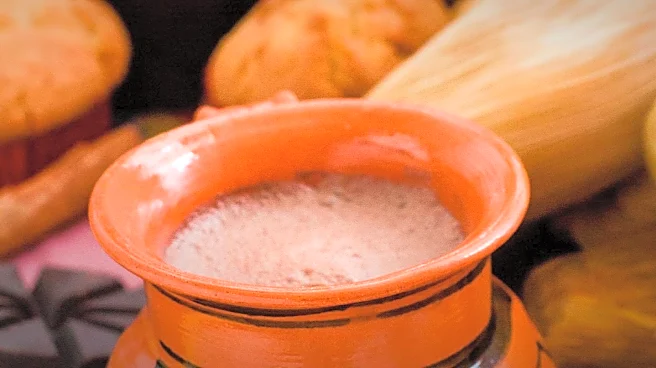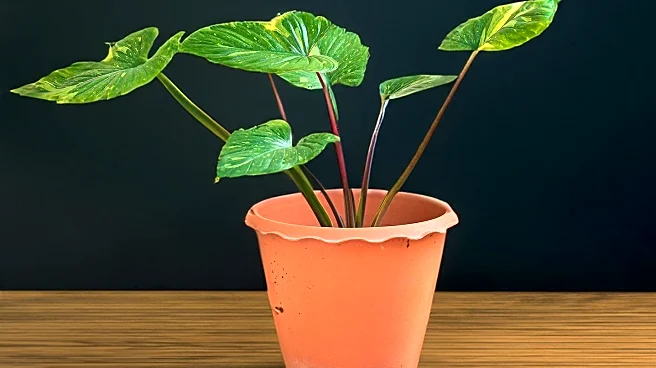What's Happening?
The Los Angeles Times highlights the cultural significance of Day of the Dead, or Día de Muertos, a tradition that has gained popularity in the U.S. over the past 25 years. The article discusses the preparation of spiced Mexican hot chocolate, a drink
traditionally associated with the holiday. The recipe includes Mexican chocolate tablets, milk, water, and spices such as cinnamon, clove, and cardamom. The drink is often paired with pan de muerto, a sweet bread, during the celebrations on November 1 and 2. The article emphasizes the importance of using traditional tools like the wooden molinillo for whisking the chocolate, and suggests sourcing ingredients from local Latin grocery stores.
Why It's Important?
Day of the Dead has become a significant cultural observance in the U.S., transcending its origins to become a social event celebrated across various communities. The commercialization of the holiday, influenced by media such as the Disney film 'Coco', has raised concerns about cultural appropriation. However, it also provides an opportunity for cultural exchange and understanding. The preparation of traditional foods and drinks, like spiced Mexican hot chocolate, allows individuals to connect with their heritage and share it with others, fostering a sense of community and cultural appreciation.
What's Next?
As Day of the Dead continues to gain popularity, there may be increased interest in authentic cultural practices and recipes. This could lead to more widespread availability of traditional ingredients and tools in mainstream grocery stores. Additionally, the holiday's growing commercial appeal might prompt discussions on how to preserve its cultural integrity while embracing its broader social significance.
Beyond the Headlines
The celebration of Day of the Dead in the U.S. reflects broader trends of cultural integration and the blending of traditions. It highlights the dynamic nature of cultural practices and the role of food in maintaining cultural identity. As more people participate in these celebrations, there may be a deeper understanding and respect for the cultural origins and significance of the holiday.















